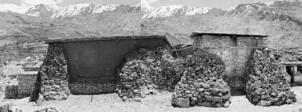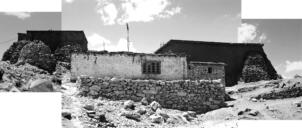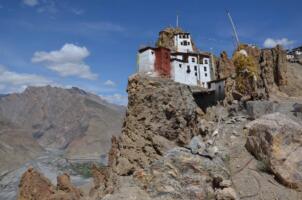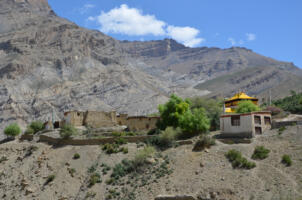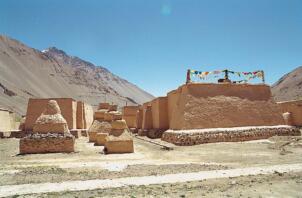Himachal Pradesh
Nako
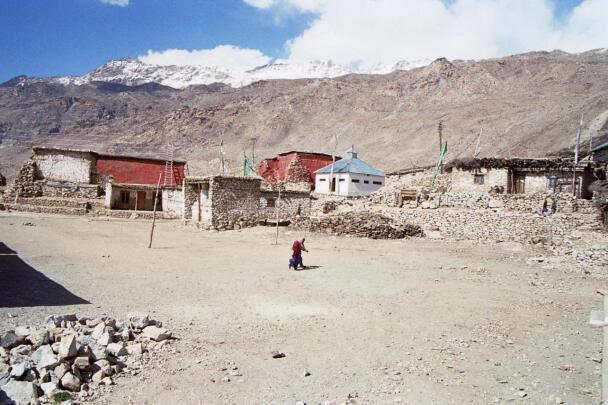
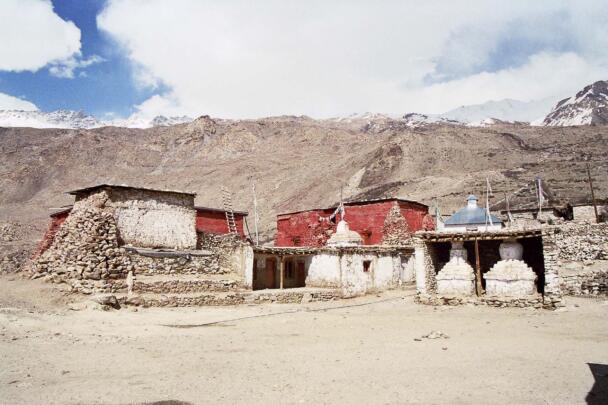
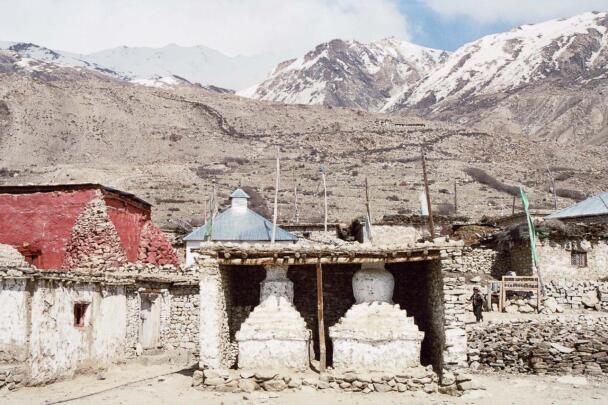
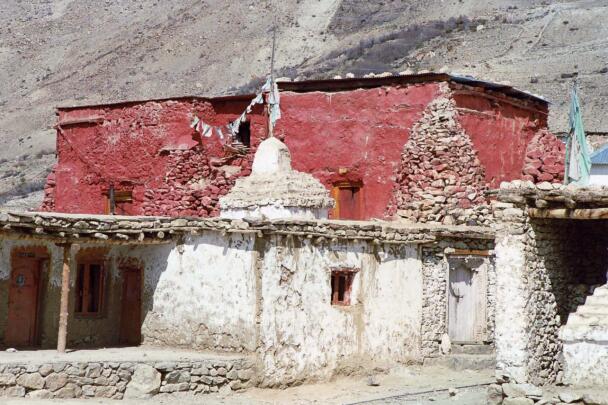
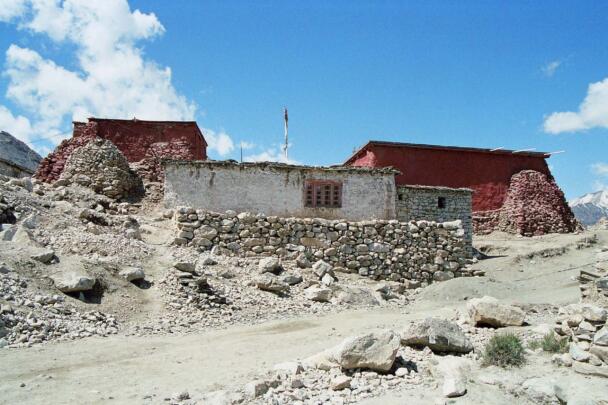
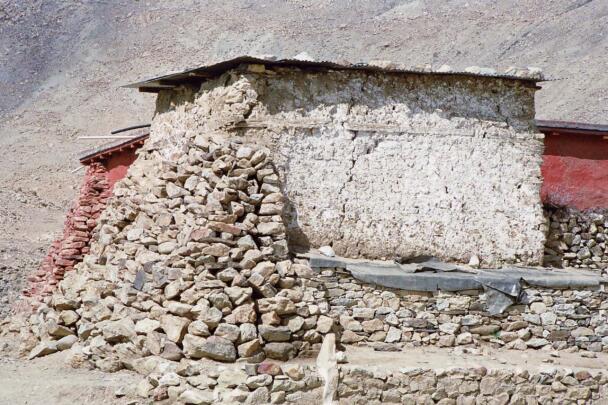
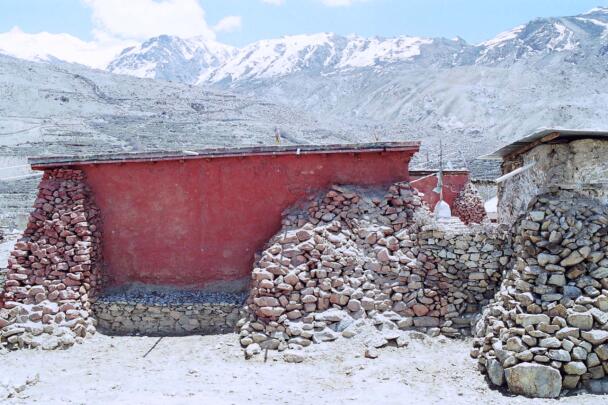
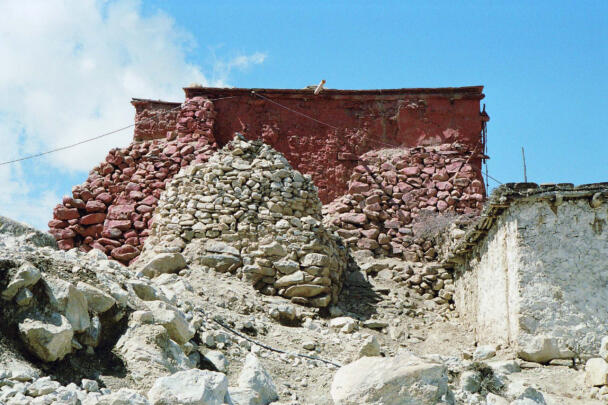
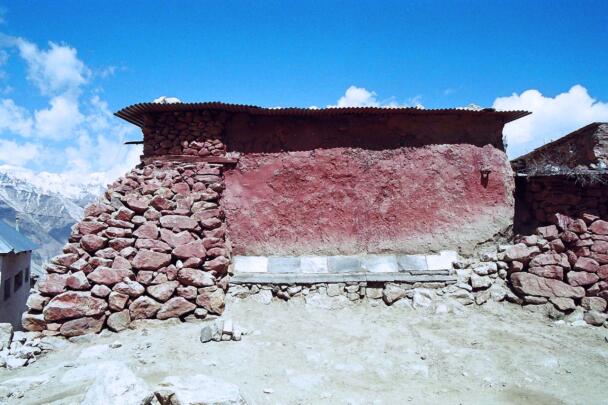
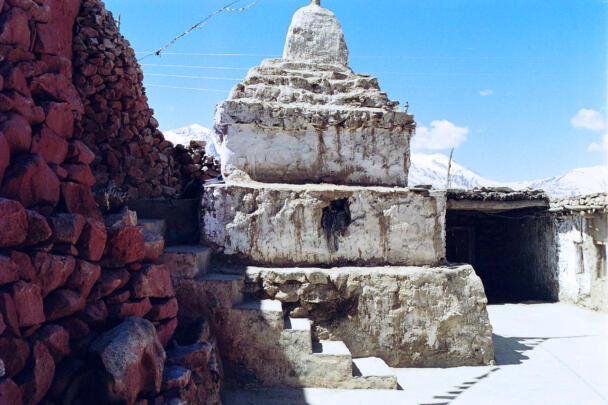
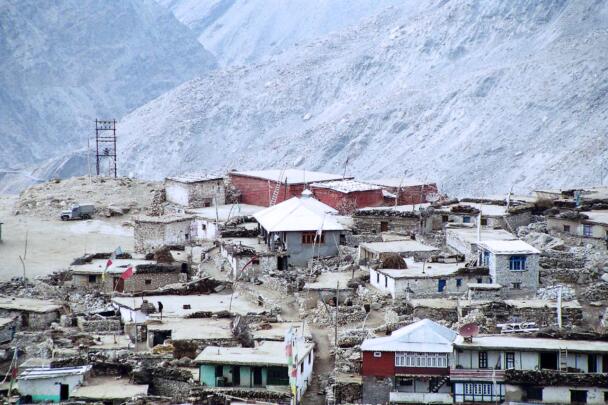
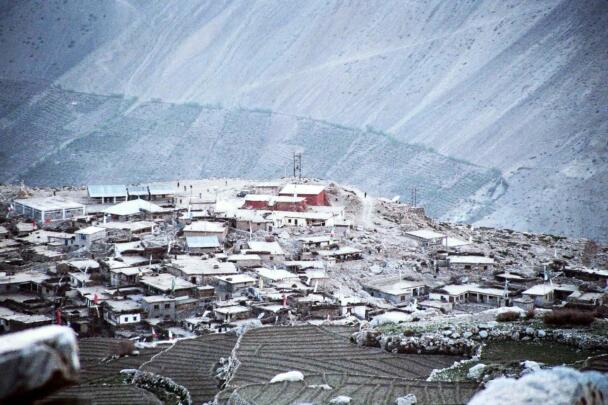
The temple complex of Nako
Coordinates of the site: 31°52’53.72″ northern latitude and 78°37’33.87″ eastern longitude, at an altitude of 3627 meters.
The village of Nako is located in the lower Spiti valley, about 33 kilometres (airline) southeast of Tabo. The settlement lies about 1000 metres above the Spiti valley on the south-western mountain slope and is surrounded by terraced fields. The temples are situated on a plateau on the north-western side of the village. The compound is partially enclosed by a wall with an entrance on the south-western side, where the village square opens as an imposing arena in front of the Spiti river’s valley. The complex consists of four temples which are arranged in pairs opposite each other around a courtyard. The buildings are orientated along a southeast-northwest axis. The White Temple lies on the left side of the monastery entrance with a wide forecourt. Next to the White Temple the Main Temple or Translator´s Temple is located with an entrance in the southeast slightly below the level of the courtyard. Opposite this largest temple of the monastery lies the second-largest Upper Temple with an entrance above the courtyard level in the northwest. The Gesar Temple with a raised entrance hidden behind a chörten lies next to it. A more recent assembly hall at the north-eastern side of the courtyard, situated between the two larger temples, is a further element of the complex. The sculptures and paintings preserved in Nako document several historical phases whose earliest has been dated to the 11th/12th century. In the earthquake of 1975 the buildings were seriously affected. Since 1989 the University of Applied Arts Vienna has conducted several research projects in association with national and international partners as well as the locals of Nako to carry out restoration works. In July 2002, the Nako Research and Preservation Project (NRPP) was established.
Cf. Krist, Gabriela (ed.) 2016. Nako: Research and Conservation in the Western Himalayas. Wien-Köln- Weimar: Böhlau. Cf. Luczanits, Christian. 2016 “The Nako Monuments in Context”. In: Krist Gabriela, (ed.), Nako: Research and Conservation in the Western Himalayas. Wien-Köln-Weimar: Böhlau, 19-45. Cf. Luczanits, Christian. 2004. Buddhist Sculpture in Clay: Early Western Himalayan Art, late 10th to early 13th centuries. Chicago: Serindia Publications, pp. 77–88.
More from

